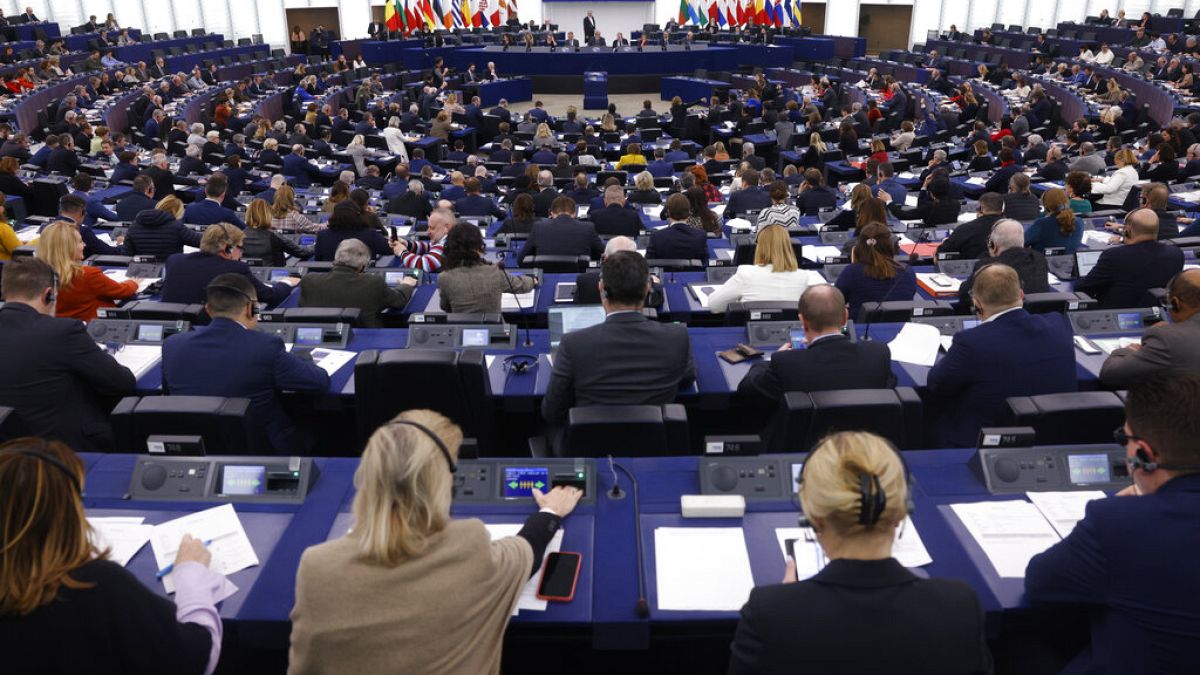Jobs
Ex-MEPs hunting for jobs: What are the EU rules on ‘revolving doors’?

Post-mandate restrictions on members of EU institutions impose a cooling-off period between the end of a mandate and the possibility of carrying out lobbying activities.
After a few weeks of summer break, MEPs are back in Brussels, reviewing their files and attending back-to-work meetups.
Others who lost their seats in the June elections might be starting a new job in the EU bubble.
But what rules apply to them?
Following the so-called Qatargate, a political scandal that came to light in 2022 involving MEPs and lobbyists who allegedly received funds from the governments of Qatar, Morocco and Mauritania to promote their interests, the European Parliament has toughened its rules on transparency and integrity.
Former MEPs are now prohibited from conducting lobbying activities at the Parliament for six months following the end of their mandate. For those who lost their seats in June, this cooling-off period is still ongoing.
For Transparency International, a six-month cooling-off period is not long enough and amounts to “window dressing”.
“It was just to add something because we all know that in the first six months of mandate, there is basically nothing that is going on. The committees still need to be created. There is little legislative activity”, Shari Hind, policy officer on EU political integrity at Transparency International, told Euronews.
She claims this hold on activities should be equivalent to the period during which MEPs receive their transitional allowance,* which is paid by taxpayers’ money anyway.
“The transitional allowance lasts between five and 24 months, depending on the length of service. So we would think that the best period of time during which having this cooling-off period should be equivalent to the transition allowance,” Hind said.
Once this period has elapsed, former MEPs must list their lobbying-related activities on the EU Transparency Register like everyone else. The mandatory database lists organisations seeking to influence EU institutions’ legislative and decision-making processes.
In addition, former MEPs are allowed to access the premises of the European Parliament in their former capacity, but they are not allowed to use this access to lobby the Parliament.
‘Revolving doors’
In 2017, more than 50% of former Commissioners and 30% of former MEPs who had left politics were working for organisations listed on the EU lobby register, according to a report published by Transparency International.
The report “Access all areas: when EU politicians become lobbyists” showed that companies were employing former officials to gain access to policy-making.
This practice is called “revolving doors”. It refers to the practice of staff who have worked in the public sector being hired by the private sector.
Beyond their knowledge of particular issues, these former civil servants are of interest to the private sector because of their network. “It’s really about the contacts that they can have. And the leverage that they can have,“ Hind said.
For instance, 50% of Google’s registered lobbyists used to work for the EU in 2017.
Also, are “revolving doors” truly democratic if, while still in office, MEPs can already have unofficial contacts with other entities?
“There lies the question, are they working to represent, for example in the case of MEPs, the citizens that elected them or already the new employer,” Hind explained. Once in their new job, they will use the contacts they made as a public official, she added.
Hind said it is difficult to quantify and regulate this practice because of the grey area around the definition of lobbying : “Sometimes there are activities that would not be defined necessarily as lobbying, but it is still influencing the EU decision making.”
She also calls for more deterrent sanctions.
What are the rules for other EU officials?
For the 2024-2029 legislative period, the European Parliament will count 720 seats, or 15 more MEPs than during the previous legislature. Some 54% of MEPs are newcomers, slightly down from the 61% in 2019. It means that approximately 350 MEPs lost their seat in June.
Portugal has the highest MEP renewal share (95%), with 20 new MEPs out of 21. Estonia has the lowest MEP renewal share (14%), with one new MEP out of seven.
The cooling-off period varies for other civil servants.
Former members of the European Commission are prohibited to lobby the Commission for two years after the end of their functions on issues linked to their former portfolio.
During this period, they must notify the institution if they plan to start a new professional activity.
The legal time frame for former European Commission presidents is three years; for former presidents of the European Council, it’s 18 months; and for top management roles, one year.
Other civil servants must obtain their superiors’ approval before a professional retraining in lobbying.










